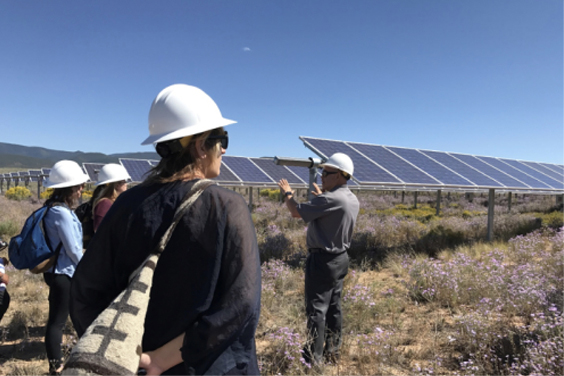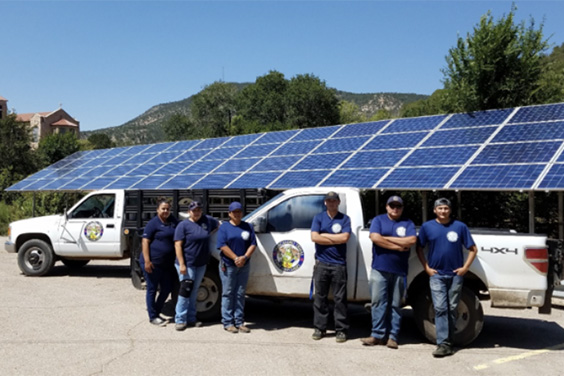CNM & UNM
CNM in partnership with UNM on their new certificate in Sustainable Building Technology, funded in part by the National Science Foundation.
Central New Mexico Community College (CNM), in partnership with the University of New Mexico (UNM), recently unveiled a new certificate in Sustainable Building Technology. It equips students, including those currently working in the construction fields, to be more skilled and knowledgeable in the sustainable practices that are becoming more and more common in building technology.
Green, or sustainable, construction focuses on producing buildings and other facilities that reduce environmental impacts and use resources more efficiently. Many of these benefits are achieved through more efficient energy and water systems and through the use of recycled or renewable materials. The Sustainable Building Technology Certificate introduces concepts of sustainable construction and construction management through theory and lab courses. Students completing the certificate may continue on to the Construction Management Associate of Applied Science Degree, to which many of the courses articulate. In addition, professionals in the construction industry may also use this certificate to enhance their skill set.
What tools, resources or financing did you use to establish your project?
The curriculum was determined using a DACUM (Developing a Curriculum) process, in which a variety of representatives from across the construction and construction management fields were brought together for facilitated conversations. Through the DACUM, essential knowledge, skills and abilities were identified and used to either create a new curriculum or refine existing curriculum within the CNM Construction Management program.
Costs associated with the DACUM, along with support for curriculum development have been provided through a National Science Foundation (NSF) Advanced Technology Education grant that was sub-awarded through the UNM Department of Civil Engineering. UNM’s role includes program outreach, mentoring for students in CNM’s certificate program, and working with local industry to encourage internships.
What benefits have you realized?
The certificate is brand new, so the industry-supported curriculum is current and relevant to the workplace. It also creates a pathway for incumbent workers to enhance their skills and “marketability” in their field. The DACUM also enabled program faculty to develop new industry connections as resources for further program development and for placement opportunities for program graduates.
What advice would you give neighboring communities who are trying to implement a similar project?
Recommendations for anyone seeking to launch a similar project would be to emphasize collaboration with all project stakeholders. This helps mitigate any issues that may arise due to preconceived ideas about how the project should be designed, developed and implemented.


